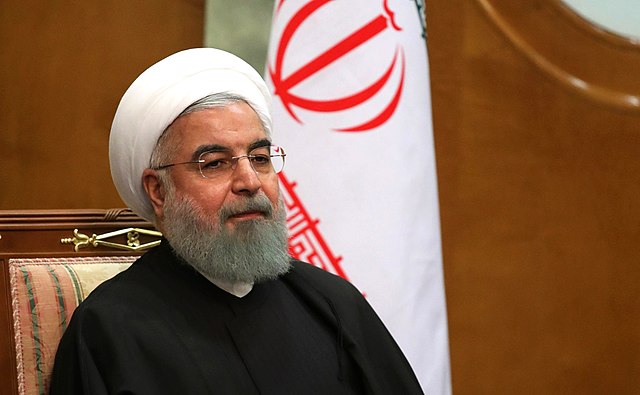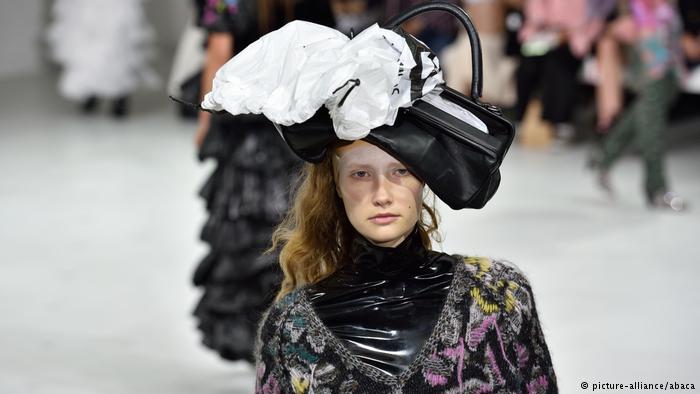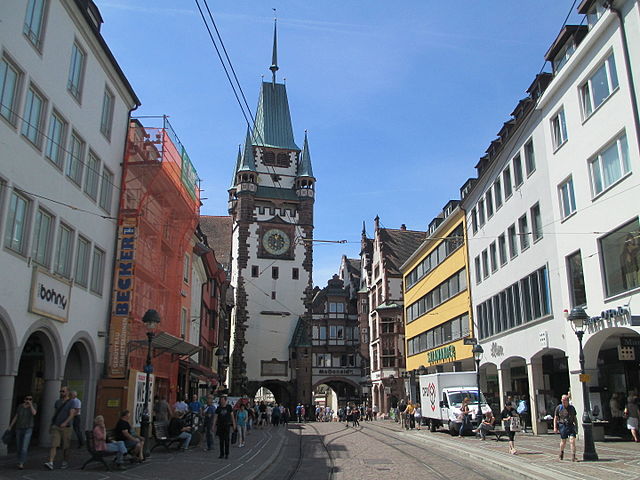
Entertainment
-
 Disney Emerges Victorious After Intense Battle
Disney has emerged triumphant in a boardroom clash against critics who had accused the media conglomerate of mishandling its streaming strategy and losing its innovative edge.04 April 2024Read More...
Disney Emerges Victorious After Intense Battle
Disney has emerged triumphant in a boardroom clash against critics who had accused the media conglomerate of mishandling its streaming strategy and losing its innovative edge.04 April 2024Read More... -
 Powerball Jackpot Reaches $975 Million Following Another Drawing Without a Big Winner
The Powerball jackpot has surged to an estimated $975 million as no one matched the six numbers drawn on Saturday night, extending a nearly three-month period without a significant01 April 2024Read More...
Powerball Jackpot Reaches $975 Million Following Another Drawing Without a Big Winner
The Powerball jackpot has surged to an estimated $975 million as no one matched the six numbers drawn on Saturday night, extending a nearly three-month period without a significant01 April 2024Read More... -
 Beyoncé: Oklahoma Radio Station Reverses Decision on Country Song After Viral Backlash Over Racism Allegation
After a fan requested a Beyoncé song on Oklahoma's KYKC radio station and was denied, citing the station's focus on country music, the situation quickly escalated.15 February 2024Read More...
Beyoncé: Oklahoma Radio Station Reverses Decision on Country Song After Viral Backlash Over Racism Allegation
After a fan requested a Beyoncé song on Oklahoma's KYKC radio station and was denied, citing the station's focus on country music, the situation quickly escalated.15 February 2024Read More... -
 Karolina Shiino: Miss Japan Steps Down Following Affair Scandal
Karolina Shiino, the Ukraine-born winner of the Miss Japan beauty pageant, has relinquished her crown after a tabloid report exposed her affair with a married man.06 February 2024Read More...
Karolina Shiino: Miss Japan Steps Down Following Affair Scandal
Karolina Shiino, the Ukraine-born winner of the Miss Japan beauty pageant, has relinquished her crown after a tabloid report exposed her affair with a married man.06 February 2024Read More... -
 Heart and Cheap Trick Unite for Royal Flush Tour Across North America
Legendary rock band Heart, inducted into the Rock and Roll Hall of Fame in 2013, is gearing up for an epic Royal Flush tour alongside special guests Cheap Trick. The extensive 52-city tour is29 January 2024Read More...
Heart and Cheap Trick Unite for Royal Flush Tour Across North America
Legendary rock band Heart, inducted into the Rock and Roll Hall of Fame in 2013, is gearing up for an epic Royal Flush tour alongside special guests Cheap Trick. The extensive 52-city tour is29 January 2024Read More... -
 Surge in American Tourism Sets Records: Switzerland Welcomes Highest Number of US Visitors in Decades
Surge in American Tourism Sets Records: Switzerland Welcomes Highest Number of US Visitors in Decades
The number of American tourists staying overnight in Switzerland surged by 20% between January and October 2023 compared to the pre-pandemic year of 2019, according to RTS01 January 2024Read More... -
 As Thanksgiving Approaches, Travelers Flood Roads and Airports Once Again
Millions of Americans have swarmed into airports and hit the highways on Wednesday as Thanksgiving Day approaches, marking the busiest travel day since the pandemic virtually halted the22 November 2023Read More...
As Thanksgiving Approaches, Travelers Flood Roads and Airports Once Again
Millions of Americans have swarmed into airports and hit the highways on Wednesday as Thanksgiving Day approaches, marking the busiest travel day since the pandemic virtually halted the22 November 2023Read More...
Economics
-
 US Senate Grapples with $1.2 Trillion Bill to Avert Shutdown, Midnight Deadline Nears
The Democratic-led U.S. Senate found itself in the throes of passing a crucial $1.2 trillion government funding bill on Friday, following its approval in the House of Representatives, whichRead More...
US Senate Grapples with $1.2 Trillion Bill to Avert Shutdown, Midnight Deadline Nears
The Democratic-led U.S. Senate found itself in the throes of passing a crucial $1.2 trillion government funding bill on Friday, following its approval in the House of Representatives, whichRead More... -
 US Producer Prices Surge, Indicating Persistent Inflation
In February, prices paid by US producers saw the most significant increase in six months, driven by rising fuel and food costs, adding to the evidence that inflation remains a pressing concern.Read More...
US Producer Prices Surge, Indicating Persistent Inflation
In February, prices paid by US producers saw the most significant increase in six months, driven by rising fuel and food costs, adding to the evidence that inflation remains a pressing concern.Read More... -
 Breaking News: Biden Administration Announces $1.2 Billion Student Debt Forgiveness for Over 150,000 Borrowers
The Biden administration announced on Wednesday its decision to forgive $1.2 billion in student debt for close to 153,000 borrowers who are part of its newlyRead More...
Breaking News: Biden Administration Announces $1.2 Billion Student Debt Forgiveness for Over 150,000 Borrowers
The Biden administration announced on Wednesday its decision to forgive $1.2 billion in student debt for close to 153,000 borrowers who are part of its newlyRead More... -
 US Senate Approves $95 Billion Aid Package for Ukraine, Israel, and Allies
The US Senate has approved a $95 billion aid package aimed at providing assistance to Ukraine, Israel, Taiwan, and Indo-Pacific allies. Despite facing criticism fromRead More...
US Senate Approves $95 Billion Aid Package for Ukraine, Israel, and Allies
The US Senate has approved a $95 billion aid package aimed at providing assistance to Ukraine, Israel, Taiwan, and Indo-Pacific allies. Despite facing criticism fromRead More... -
 Surprising Surge in US Jobs for January Defies Economic Predictions
The US job market continues to outperform expectations, with a robust increase of 353,000 jobs in January, confounding predictions of an economic slowdown. Average hourly pay alsoRead More...
Surprising Surge in US Jobs for January Defies Economic Predictions
The US job market continues to outperform expectations, with a robust increase of 353,000 jobs in January, confounding predictions of an economic slowdown. Average hourly pay alsoRead More...
Fashion
-
 Costco Offers Affordable Version of Anthropologie Mirror, Sparking Social Media Buzz
Costco shoppers are buzzing about a floor mirror that closely resembles a luxury mirror from Anthropologie but comes with a significantly lower price tag. The Anthropologie Luisa Mirror, pricedRead More...
Costco Offers Affordable Version of Anthropologie Mirror, Sparking Social Media Buzz
Costco shoppers are buzzing about a floor mirror that closely resembles a luxury mirror from Anthropologie but comes with a significantly lower price tag. The Anthropologie Luisa Mirror, pricedRead More... -
 City Council Commemorates Hispanic Heritage Month
This year, the Councilors acknowledged Hispanic leaders in Boston for their hard work, leadership and commitment to their communities. Recipients were awarded the Pilares de la HispanidadRead More...
City Council Commemorates Hispanic Heritage Month
This year, the Councilors acknowledged Hispanic leaders in Boston for their hard work, leadership and commitment to their communities. Recipients were awarded the Pilares de la HispanidadRead More... -
 Hermès Resolves Patent Dispute with Skechers over Shoe Soles in New York
Hermès International SCA HRMS.PA, the French luxury fashion house, has settled a lawsuit brought by Skechers USA Inc SKX.N regarding alleged patent infringementRead More...
Hermès Resolves Patent Dispute with Skechers over Shoe Soles in New York
Hermès International SCA HRMS.PA, the French luxury fashion house, has settled a lawsuit brought by Skechers USA Inc SKX.N regarding alleged patent infringementRead More... -
 Diamond Prices Firm After Supply Declines
Diamond trading was seasonally slow in December as the industry’s focus shifted to retail and as diamantaires took their end-of-year break. Sentiment received a boost from strong holidayRead More...
Diamond Prices Firm After Supply Declines
Diamond trading was seasonally slow in December as the industry’s focus shifted to retail and as diamantaires took their end-of-year break. Sentiment received a boost from strong holidayRead More... -
 Protesters target Polanski film at cinemas in Brussels
Feminist activists defaced cinemas in Brussels with angry condemnations of director Roman Polanski's latest film overnight on Tuesday and Wednesday.Read More...
Protesters target Polanski film at cinemas in Brussels
Feminist activists defaced cinemas in Brussels with angry condemnations of director Roman Polanski's latest film overnight on Tuesday and Wednesday.Read More... -
 London Latino heartlands struggle for survival
Whenever London's South Americans go looking for a job, a helping hand, the flavours of home or a party with their compatriots, they head to the Latino indoor marketRead More...
London Latino heartlands struggle for survival
Whenever London's South Americans go looking for a job, a helping hand, the flavours of home or a party with their compatriots, they head to the Latino indoor marketRead More... -
 Tutankhamun sculpture’s London auction sparks Egyptian outcry
A 3,000-year-old head sculpture of an eternally-young Tutankhamun — the Egyptian pharaoh known as King Tut — goes under the hammer this week in London despite an outcry from Cairo.Read More...
Tutankhamun sculpture’s London auction sparks Egyptian outcry
A 3,000-year-old head sculpture of an eternally-young Tutankhamun — the Egyptian pharaoh known as King Tut — goes under the hammer this week in London despite an outcry from Cairo.Read More... -
 Four top British authors in novel anti-Brexit European crusade
Ken Follett, Lee Child, Kate Mosse and Jojo Moyes, four heavyweights of British literature, are launching a "Friendship Tour" of Europe to represent the 48 percent whoRead More...
Four top British authors in novel anti-Brexit European crusade
Ken Follett, Lee Child, Kate Mosse and Jojo Moyes, four heavyweights of British literature, are launching a "Friendship Tour" of Europe to represent the 48 percent whoRead More... -
 Zombies and women: London Men's Fashion Week wraps up
Models in zombie make-up and a growing number of women on the catwalks were among the eye-catching features of Men's Fashion Week, which wrapped up inRead More...
Zombies and women: London Men's Fashion Week wraps up
Models in zombie make-up and a growing number of women on the catwalks were among the eye-catching features of Men's Fashion Week, which wrapped up inRead More...

Most Read
- Greece hails new post-bailout chapter but concerns remain
- Fatal Alligator Attack Claims Life of 69-Year-Old Woman in South Carolina
- 34th Conference on the Holocaust and Genocide, Millersville University of Pennsylvania
- Design Museum turns old London icon into new global hub
- Game over? Computer beats human champ in strategy challenge
Entertainment

President Hassan Rouhani said Wednesday that Iran "does not intend any aggression" against its neighbours but will continue to produce all the weapons it needs for its defence.
An asylum seeker claiming to be from Afghanistan faces his verdict in Germany on Thursday for the rape and murder of a student that fuelled a backlash against a mass migrant influx.

Trolling, impersonating, demonising: these are just some of the behaviours encouraged in a new online game launching Tuesday in which young players become "fake news tycoons"

A senior British MP on Wednesday accused Facebook of failing to seriously investigate possible Russian influence in the Brexit vote, after it found just three adverts linked to a known

A non-existent restaurant supposedly based in a garden shed briefly became London's top eating place on travel and restaurant website TripAdvisor, who on Thursday (Dec 7)

British low-cost airline EasyJet has named Johan Lundgren, the former deputy of TUI travel group, as its new chief executive, it said Friday.

Top fashion designers set out Sunday to prove the saying that a stylish woman can even look good in a bin bag.
Belgian husband and wife team Filip Arickx and An Vandevorst turned black plastic bin liners and dry cleaning sheaths into skirts and elaborate embroidered ball gowns in their debut Paris haute couture show.
Haute couture is the very pinnacle of the fashion world, with only an elite band of designers allowed to show their luxurious handmade creations in the French capital, some of which cost tens of thousands of dollars.

Mali's fabled city of Timbuktu on Thursday celebrated the recovery of its historic mausoleums, destroyed during an Islamist takeover of northern Mali in 2012 and rebuilt thanks to UN cultural agency UNESCO.
The dusty desert city formally received the keys to the precious shrines to Muslim saints dating back to medieval times at a ceremony consecrating their return that was held in the legendary Djingareyber mosque.
Al-Qaeda-linked insurgents wrecked 14 of the city's iconic earthen shrines built during Timbuktu's 15th and 16th century golden age as an economic, intellectual and spiritual centre.
To mark their reconstruction, five heads of cattle were ritually sacrificed just after dawn, ahead of a reading of the entire Muslim holy book the Koran and the handing of the keys to the families in charge of their care.
"This day celebrates the remarkable and courageous work accomplished to recover your dignity," UNESCO's Lazare Eloundou told the officials, diplomats and religious and traditional dignitaries attending the ceremony.
UNESCO has listed the city as a world heritage site in danger due to "its important role of commercial, spiritual and cultural centre on the southern trans-Saharan trading route, and its traditional characteristic construction techniques."
Islamist fighters destroyed the centuries-old shrines after seizing the city in April 2012, swiftly implementing a version of Islamic law which forced women to wear veils and set whipping and stoning as punishment for transgressions.
- 'Idolatrous' -
They considered the shrines, as well as priceless ancient manuscripts, to be idolatrous.
But in January 2013 they fled the city, driven out by a French-led international force which is still stationed in Mali but has failed to take control of remote northern reaches of the vast desert nation.

On billboards across the Florida Everglades, a burly Native American man pries open an alligator's mouth, pressing his face dangerously close to the reptile's 80 glinting teeth. "Adventures Await," the ads promise, as motorists whiz by.
The man's name is Rocky Jim, Jr., a 44-year-old Miccosukee Indian who has been wrestling alligators for 31 years, entertaining countless tourists from a sand pit and pond beneath a chickee hut along the Tamiami Trail, a two-lane road linking Miami to the port city of Tampa.
But on the final Sunday of 2015, the last remaining Miccosukee Indian in the century-old tradition of wrestling alligators decided it was time to step down, leaving no successors in sight among the tribe of around 600 people.
The end came just minutes into the 1 o'clock show, when Jim coaxed the alligator's mouth open by gently tapping its snout, then placed his hand inside.
The move is perilous only if something touches the alligator's palate -- a drop of sweat, a grain of sand -- causing the jaw to reflexively snap shut.
While pulling out his hand, he rotated it slightly and accidentally grazed a tooth.
The feeling was like "a door slamming on your hand. With sharp teeth," Jim said in an interview later.
But in the moment, as he looked down at his palm and forearm encased in the alligator's jaw, he had only one thought: "Don't shake."
"If it shakes, my hand is going to go with it," he told AFP, describing the thrashing motion alligators use to slice up fresh meat, much the same way as sharks.
"Its natural instinct is to do that," said Jim, who had been bitten several times before.

Italians call it a brindisi, the celebratory clinking of glasses to mark a special occasion.
And if the occasion is really special, there is a good chance it will involve fizz from Ferrari, the country's market leader in the production of top-end sparkling wine.
A 113-year-old family-run business based at Trento in the foothills of the Alps, this Ferrari has nothing to do with Formula One.
It has long been synonymous with Italian sporting success however, most famously when legendary striker Paolo Rossi glugged from one of its magnums after the national soccer team had triumphed in the 1982 World Cup final.
On home soil, Ferrari is also a wedding toast favourite and a perennial choice of Italian leaders seeking to impress visiting dignitaries, most recently at the World Expo in Milan, where Prime Minister Matteo Renzi teased French President Francois Hollande that he would not find anything better in Champagne.
"The great heritage of the brand is how it is entwined with Italians' lives and emotions," says the firm's youthful CEO Matteo Lunelli.
Along with a clutch of cousins, Lunelli is now looking to leverage Ferrari's domestic reputation into international growth, helped by growing critical acclaim and marketing breakthroughs like being served at the after party at this year's Emmy awards.
At the recent Champagne & Sparkling Wine World Championships in London, the Italian producer entered nine wines and secured nine gold medals, walking away with the overall best producer award ahead of venerable champagne houses Charles Heidsieck and Louis Roederer.
"It is unheard of," said bubbles authority Tom Stevenson, the competition organiser. "It has certainly never happened in any competition I have judged at around the world."
- Prosecco 'opens a door' -
Lunelli believes the export-led boom in sales of cheaper-to-produce Prosecco, which has recently surpassed champagne to become the world's most popular sparkling wine, can help Ferrari expand steadily in its target niche at the luxury end of the market.
"Of course it is a challenge to explain to customers the diversity of Italian sparkling wines, which come from very different areas and are made in very different ways," he said.
"But I'm convinced, the success of Prosecco opens a door for us," he said.
Experts are not quite so sure at a time when the trend in wine marketing is towards recognisable brands -- something Prosecco, with its easy-drinking style and easy-to-remember name, has benefited from.





















